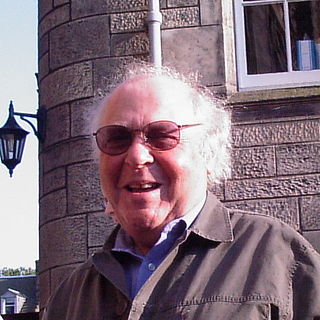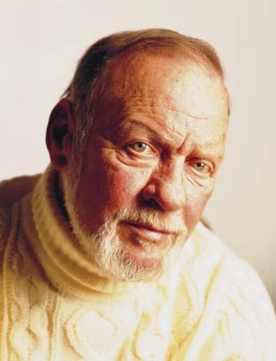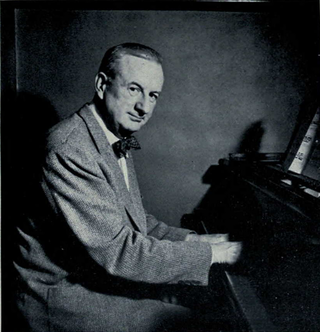Related Research Articles

A traditional hunter-gatherer or forager is a human living an ancestrally derived way of life in which most or all food is obtained by foraging, that is, by gathering food from local naturally occurring sources, especially edible wild plants but also insects, fungi, honey, bird eggs, or anything safe to eat, and/or by hunting game. This is a common practice among most vertebrates that are omnivores. Hunter-gatherer societies stand in contrast to the more sedentary agricultural societies, which rely mainly on cultivating crops and raising domesticated animals for food production, although the boundaries between the two ways of living are not completely distinct.

Marshall David Sahlins was an American cultural anthropologist best known for his ethnographic work in the Pacific and for his contributions to anthropological theory. He was the Charles F. Grey Distinguished Service Professor Emeritus of Anthropology and of Social Sciences at the University of Chicago.

Napoleon Alphonseau Chagnon was an American cultural anthropologist, professor of sociocultural anthropology at the University of Missouri in Columbia and member of the National Academy of Sciences. Chagnon was known for his long-term ethnographic field work among the Yanomamö, a society of indigenous tribal Amazonians, in which he used an evolutionary approach to understand social behavior in terms of genetic relatedness. His work centered on the analysis of violence among tribal peoples, and, using socio-biological analyses, he advanced the argument that violence among the Yanomami is fueled by an evolutionary process in which successful warriors have more offspring. His 1967 ethnography Yanomamö: The Fierce People became a bestseller and is frequently assigned in introductory anthropology courses.
Prehistoric warfare refers to war that occurred between societies without recorded history.
Alfred Irving "Pete" Hallowell was an award-winning American anthropologist, archaeologist and businessman.
Richard Borshay Lee is a Canadian anthropologist. Lee has studied at the University of Toronto and University of California, Berkeley, where he received a Ph.D. He holds a position at the University of Toronto as Professor Emeritus of Anthropology. Lee researches issues concerning the indigenous people of Botswana and Namibia, particularly their ecology and history.

Raymond Louis Wilder was an American mathematician, who specialized in topology and gradually acquired philosophical and anthropological interests.
Stanley Jeyaraja Tambiah was a social anthropologist and Esther and Sidney Rabb Professor (Emeritus) of Anthropology at Harvard University. He specialised in studies of Thailand, Sri Lanka, and Tamils, as well as the anthropology of religion and politics.
Sherry Beth Ortner is an American cultural anthropologist and has been a Distinguished Professor of Anthropology at UCLA since 2004.
Joyce Marcus is a Latin American archaeologist and professor in the Department of Anthropology, College of Literature, Science, and the Arts at the University of Michigan, Ann Arbor. She also holds the position of Curator of Latin American Archaeology, University of Michigan Museum of Anthropological Archaeology. Marcus has published extensively in the field of Latin American archaeological research. Her focus has been primarily on the Zapotec, Maya, and coastal Andean civilizations of Central and South America. Much of her fieldwork has been concentrated in the Valley of Oaxaca, Mexico. She is known for her "Dynamic model", four-tiered hierarchy, and her use of interdisciplinary study.
Kent Vaughn Flannery is a North American archaeologist who has conducted and published extensive research on the pre-Columbian cultures and civilizations of Mesoamerica, and in particular those of central and southern Mexico. He has also published influential work on origins of agriculture and village life in the Near east, pastoralists in the Andes, and cultural evolution, and many critiques of modern trends in archaeological method, theory, and practice. At the University of Chicago he gained his B.A. degree in 1954; the M.A. in 1961 and a Ph.D. in 1964. From 1966 to 1980 he directed project “Prehistory and Human Ecology of the Valley of Oaxaca, Mexico.” dealing with the origins of agriculture, village life, and social inequality in Mexico. He is James B. Griffin Professor in the Department of Anthropology at the University of Michigan. In 2005, he was elected to the American Philosophical Society.
Charles Leslie Briggs is an anthropologist who works at the University of California, Berkeley, United States. Before working at Berkeley he held a position as Chair of the Ethnic Studies Department and Director of the Center for Iberian and Latin American Studies at University of California, San Diego.
Gary J. Witherspoon was a professor of Native American studies at the University of Washington. His area of expertise was the Navajo language and Navajo culture.

Alan H. Goodman is a biological anthropologist and author. He served as president of the American Anthropological Association from 2005 to 2007. With Yolanda Moses, he co-directs the American Anthropological Association's Public Education Project on Race. His teaching, research and writing focuses on understanding how poverty, inequality and racism “get under the skin.” He received his PhD from the University of Massachusetts Amherst. Goodman was a pre-doctoral research fellow in stress physiology at the Karolinska Institute, Stockholm and a postdoctoral fellow in international nutrition at the University of Connecticut and the Salvador Zubirán National Institute of Health Sciences and Nutrition, Mexico.

Wolfgang Fikentscher was a German jurist, legal anthropologist, and academic.
Social anthropology is the study of patterns of behaviour in human societies and cultures. It is the dominant constituent of anthropology throughout the United Kingdom and much of Europe, where it is distinguished from cultural anthropology. In the United States, social anthropology is commonly subsumed within cultural anthropology or sociocultural anthropology.
Intergroup relations refers to interactions between individuals in different social groups, and to interactions taking place between the groups themselves collectively. It has long been a subject of research in social psychology, political psychology, and organizational behavior.

Antonius "Tony" Cornelis Gerardus Maria Robben is a Dutch cultural anthropologist and Professor Emeritus of Anthropology at Utrecht University, in the Netherlands.
Larissa Adler Lomnitz was a French-born Chilean-Mexican social anthropologist, researcher, professor, and academic. After living in France, Colombia, and Israel, she received Chilean nationality by marriage and Mexican nationality by residence.
References
- ↑ (2006) Knauft, Bruce and Michael G. Peletz, "Structure, Cultural Logic, and Transformational Dynamics in the Social Organization of Unstratified Societies: The Work of Raymond C. Kelly." Michigan Discussions in Anthropology, Vol. 16, Retrospectives: Works and Lives of Michigan Anthropologists. Ann Arbor: University of Michigan
- 1 2 Zagorski, N. (2005). "Profile of Raymond C. Kelly". Proceedings of the National Academy of Sciences. 102 (51): 18249–18251. Bibcode:2005PNAS..10218249Z. doi: 10.1073/pnas.0506968102 . PMC 1317930 . PMID 16352723.
- ↑ 1992 "Marquis Who's Who in the World", 11th ed., 1993-1994., Reed Publishing, New Providence, NJ.